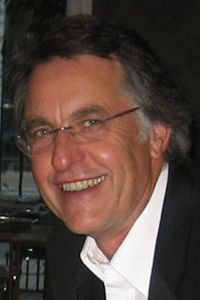Anthony David Barnosky is a renowned ecologist, geologist, and biologist with a focus on paleoecology. He spent his illustrious career as a Professor at the Department of Integrative Biology at the University of California, Berkeley, until his retirement.
Barnosky's academic journey began with a Bachelor's degree in geology from Colorado College in 1974. He then pursued advanced degrees, earning a Master's in Earth Sciences from the University of Washington in 1980 and a Ph.D. in the same field in 1983.
In his personal life, Barnosky is married to Elizabeth A. Hadly, a fellow scientist in the same field. His research primarily revolves around the intricate relationship between climate change and mass extinctions.
As an expert in his field, Barnosky has dedicated his work to identifying "tipping elements" in the Earth System, which has led him to advocate for clearer climate policies to achieve the two-degree target for average temperature rise. He firmly believes that climate change is a major driver of displacement and the current mass extinction.
A crucial concept in Barnosky's research is the concept of "tipping point," where localized ecological systems can shift abruptly and irreversibly from one state to another when forced beyond critical thresholds. He has extensively reviewed evidence suggesting that the global ecosystem as a whole can react in a similar manner, approaching a planetary-scale critical transition due to human influence.
To address this pressing issue, Barnosky emphasizes the importance of improving biological forecasting by detecting early warning signs of critical transitions on both global and local scales, as well as identifying feedbacks that promote such transitions. Moreover, it is essential to tackle the root causes of how humans are driving biological changes.
Source: Article "Anthony David Barnosky" from Wikipedia in English, licensed under CC-BY-SA 3.0.





















